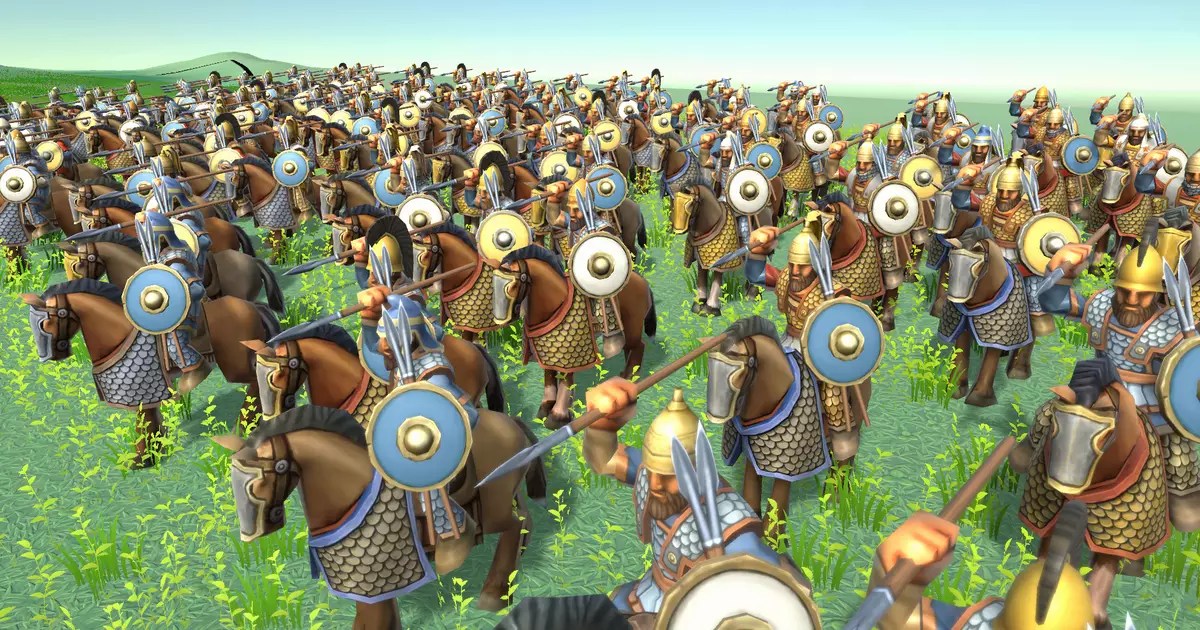In an age where narrative-driven games and epic storylines captivate players, “Strategos” emerges as a bold testament to the timeless appeal of tactical warfare simulations. MicroProse, a name laden with nostalgia from the golden era of gaming, has taken an audacious step by publishing this ambitious real-time tactics wargame. Set against the sprawling backdrop of classical antiquity, “Strategos” promises to deliver an experience that not only commemorates historical battles but also challenges players to think like generals. Yet, the comparison to established titles like “Total War: Rome” feels inadequate, as “Strategos” appears to carve its own niche within the genre, offering players a fresh perspective on ancient conflict.
Individual Craftsmanship Over Corporate Machinery
One aspect that sets “Strategos” apart is its development process. Crafted by a single designer and programmer with a team of contract artists, this game embodies a vision that is likely more personal and refined than many of its corporate competitors. Where large studios often focus on broad strokes and expansive narratives, “Strategos” focuses on the minutiae of battlefield tactics. This is not merely a game but a love letter to military strategy, birthed from a creator who presumably yearned for authenticity and depth over quantity. It invites players to experience the tactical intricacies of warfare without the overwhelming complexity that often bogs down gameplay in larger franchises.
A Smorgasbord of Factions
At the heart of “Strategos” is its breathtaking array of factions—over 120 armies and 250 unit types—opening up a vast historical tapestry for players to explore. From hoplites and Immortals to the legions of Rome, the variety is staggering. One cannot help but be intrigued (and perhaps a little daunted) by an array that includes niche armies like Meroitic Kushites and Spanish Celtiberians. The diversity promises not just a vast pool for players to draw from but also encourages players to experiment with different strategies unique to each faction. This depth can lead to a more personalized gameplay experience, allowing players to forge their scholarly paths through ancient warfare, rather than merely reenacting well-trodden historical battles.
The Complexity of Command
A notable innovation within “Strategos” is its army control system, which eschews the larger-than-life micromanagement style often found in games of its ilk. Instead, it requires players to manage their commands through strategic placements of generals within audible range, or by dispatching couriers with instructions. This choice leads to an evolved sense of realism; players will need to think critically about positioning and communication on the battlefield, reminiscent of the beloved “Close Combat” series, where tactical coherence often hinged on maintaining contact with forces in the fray. The reinforcement of verbal command adds a layer of strategy that could redefine engagement within tactical gameplay.
Improvements to AI Behavior
One of the most exciting aspects of “Strategos” is its nuanced AI enhancements that govern how armies behave during battles. The developers seem keenly aware of the frustrations common to tactical gamers, particularly when it comes to AI behaviors like flanking and unit cohesion. With improvements such as intelligent pursuit options and smarter deployment strategies tailored to specific army types, players can expect a more dynamic and engaging experience. This elevates the game’s tactical depth, potentially allowing for more intricate skirmishes and strategic victories that hinge not just on luck or brute strength, but on developing a keen understanding of the battlefield context.
Campaign Elements and Customization
In addition to its historical engagements, “Strategos” features a campaign mode that allows players to conquer alongside some of history’s most celebrated generals. This not only adds layers to the gameplay but also ensures that players can tailor their experience to suit their tactical preferences. Whether reenacting famous battles or setting up custom scenarios through the Historical Battle Simulator, the options for gameplay are extensive. This flexibility enhances replayability and keeps the tactical experience fresh, allowing players to explore the vast possibilities of classical warfare without becoming stale.
Looking Ahead
While excitement surrounds “Strategos” and its potential for a deeply engaging tactical experience, the true test will lie in its execution. The intricacies of AI, the need for effective communication in command, and the richness of its faction diversity all sound promising, yet the actual gameplay experience will ultimately determine its place within the pantheon of strategy games. Players eager for nuanced strategic warfare will certainly keep a keen eye on this project, hoping “Strategos” delivers the tactical brilliance it so ambitiously strives for.


Leave a Reply